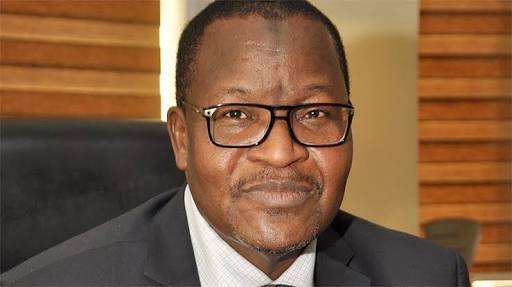The Nigerian Communications Commission said it increased broadband penetration in the country from less than six per cent in 2015 to 43.30 per cent by August 2020.
Executive Vice Chairman of the NCC, Prof Umaru Danbatta, disclosed this in a keynote address at the 5th Nigeria Innovation Week on Tuesday.
“Apart from meeting and surpassing the 30 percent broadband penetration in December, 2018, in line with the NBP 2013-2018 target, NCC increased broadband penetration from less than 6 percent in 2015 to 43.30 percent by August 2020,” Danbatta, who was represented by the Director, Public Affairs, Dr Ikechukwu Adinde, said.
The 43.30 per cent broadband penetration translates to 82, 653,247 broadband subscriptions in the country as of August, 2020.
Danbatta noted that the development was instrumental to the emergence and survival of SMEs that have had to ride on the backbone of telecoms infrastructure during the coronavirus pandemic.
The theme of the 2020 Innovation Week, ‘Innovating in Critical Times’, was informed by numerous challenges thrown up by the COVID – 19 pandemic in the country, particularly in the ICT sector.
Noting that a robust broadband infrastructure upon which ICT innovations will ride was an urgent necessity, Danbatta explained that the vision to build a telecommunications market defined by universal access to affordable and equitable service informed the Commission’Strategic Vision Plan.
The plan is an eight-point agenda which focused primarily on facilitating broadband penetration, improving Quality of Service (QoS), optimizing usage and benefits of spectrum, promoting ICT innovation and investment opportunities, facilitating strategic collaboration and partnerships, protecting and empowering consumers, promoting fair competition and inclusive growth and ensure regulatory excellence and operational efficiency.
“The driving force behind the eight-point agenda was to prepare the industry for the uncertainties and challenges that lay ahead, considering the disruptions caused by evolving technologies.
“This is to ensure that the sector continues to play its veritable role as the enabler of the nation’s economic growth,” he added.
Danbatta noted that the Commission’s initiative to license Infrastructure Companies (INFRACOs) to bridge existing gaps will further improve not only broadband penetration but the quality of broadband experience.
According to him, currently, the NCC has six licensed INFRACOs, one in each geo-political zone of the country, with Lagos State receiving special status because of its commercial centrality to the country.
A seventh license, for the North-Central region, is being processed, he said.
He further disclosed that the Commission is in the process of finalizing the six Infracos Counterpart Funding Agreement to galvanise the full rollout of broadband infrastructure on an Open Access Model (OAM) aimed at enhancing digital transformation towards ensuring that there is Point of Access in each of the 774 local governments in the country.
Noting that disruptions caused by the pandemic had underscore the need to continue to invest in research and innovation in order to find lasting solutions to current and emerging problems, Danbatta said the NCC has been supporting research efforts in our tertiary institutions.
“Till date, the Commission has awarded the sum of N345.4 million as research grants to the academia and as endowment of professorial chairs in two Nigerians to drive innovation through promoting local content development in the telecoms sector.
“We have also empowered the Nigerian youths by promoting their ingenuity and innovation on developing locally-relevant technology solutions.
“The latest of such was the NCC Virtual Hackathon, where the Commission gave out N9 million in grant to three top tech start-ups with the most promising innovative solutions for COVID-19,” he said.
Noting that ICT has become the major backbone for government activities and local businesses as a result of the COVID – 19 pandemic, Danbatta said the NCC was committed to the security of the country’s cyberspace.
“The re-direction of human traffic to online portals for major transactions as a result of social distancing also meant that cybercriminals have a larger audience and a much bigger playground to execute their nefarious activities.”
According to him, the NCC is collaborating with the Central Bank of Nigeria, major financial institutions and security agencies to ensure that Nigeria’s cyberspace is secured.
You can always reach us through these channels Facebook: https:/www.facebook.com/ancitymedia Instagram: https://www.instagram.com/ancitymedia Youtube Channel: https://youtube.com/@ancitymedia
Phone Numbers: 07062501185, 09038738731 E-Mail: info@ancity.com.ng, anambracity@gmail.com Copyright. This Post: Danbatta: NCC increased broadband penetration from less than 6 % in 2015 to 43.30% by August 2020 was approved and published by Ancity Media Editor and may not be republished elsewhere without prior written permission from the Editor. |







